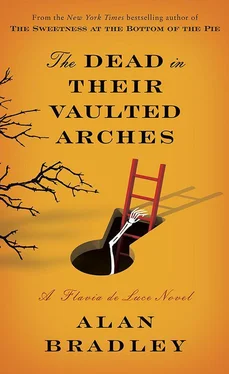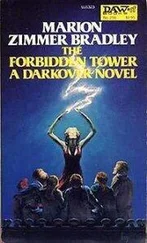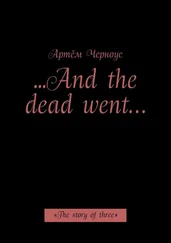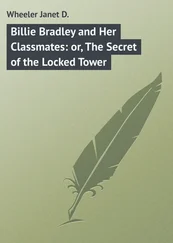I tried to give Dieter a grateful smile but could not catch his eye.
Now the vicar was leading us towards the church. Worn with a purple stole over a black cassock, his surplice was blindingly white in the April sunshine.
In the porch, Mr. Haskins, who served as both sexton and verger, his chin tucked tightly in as a sign of office, indicated by hand signals that we were to follow him.
The pews were already packed with people, and the dozens left standing at the back and in the side aisles fell suddenly silent as the organ began to play a haunting melody. I recognized it at once as G. Thalben-Ball’s Elegy , which Feely thought she had been practicing in secrecy for days.
Here, on the left, was Jocelyn Ridley-Smith with a new attendant whom I didn’t recognize. Poor Jocelyn: He believed that I was Harriet, and I couldn’t help wondering whose funeral he thought he was attending. I gave him a reassuring smile which he returned with as much of a courtly bow as he could manage from a sitting position.
Over there, looking strained, was Cynthia Richardson. She and Harriet had been particular friends and I realized with a start that this funeral could well be even harder on her than it was on me.
At the end of a row of pews, in his wicker wheelchair, was Dr. Kissing. Although I managed to catch his eye, he gave not a flicker of recognition. Our acquaintance, I realized—at least publicly—was not one he wished to advertise. He was Father’s old headmaster and no more.
Our small procession made its way up the center aisle behind the pallbearers, and as Harriet’s coffin was placed with military precision on wooden trestles outside the chancel gates, Mr. Haskins wigwagged us with broad ceremonial gestures to our private seats in the transept.
Dogger, Dieter, and the Mullets were seated directly behind us. It was comforting just to know that they were there. Dieter had obviously changed his mind—or had it changed for him—about remaining on the sidelines.
By leaning forward, I could see almost to the back of the church. Most of the village of Bishop’s Lacey had already crowded themselves inside and were busily looking up the Burial of the Dead in the Book of Common Prayer .
My heart gave a little leap. There on the aisle sat Inspector Hewitt and his wife, Antigone. He leaned slightly towards her, speaking quietly, and she nodded gravely.
I wanted to wave but because it wouldn’t have pleased certain people, I didn’t.
Antigone Hewitt had once invited me to tea and I had made a hash of it. I’d been waiting for a chance to beg her forgiveness in person but so far had not had the opportunity.
I had last seen her a little more than a week ago when she had driven us home after the Easter service. She had promised to take me—just the two of us!—on a shopping trip to Hinley. “A girls’ day out,” she had called it.
Of course the tragic news of Harriet had come at that time, and it now seemed doubtful that such a giddy outing was likely to take place in the foreseeable future.
At the end of our pew, Lena and Undine edged crabwise into their places beside me. Lena was wearing a black tailored suit, and Undine, in a red velvet dress, had a black bow tied in her hair.
“I hadn’t realized it would be such a cavalcade,” Lena muttered to no one in particular—perhaps to me. “Push over.”
Somewhere in one of the twisty mazes at the back of my brain, a single shred of silver confetti fell. But it was no more than a single flake in a blizzard of images.
Undine raised a copy of Hymns Ancient and Modern to her face, as if she was shortsighted, and under cover of the book, stuck out her tongue and crossed her eyes grotesquely.
I mouthed an improper word at her which I’m sure she understood, since she now widened her eyes, sucked in a noisy and greatly exaggerated breath, and let her mouth fall open as if in shock.
She whispered something into Lena’s ear, but I didn’t care.
The organ swelled into a song of triumph, the glorious music causing me to feel suddenly as if caterpillars were crawling up my spine.
All eyes were upon my mother’s coffin, and every last one of us gasped as a sudden beam of sunshine broke through the stained-glass windows to illuminate the Union Jack.
Daffy and I stared at each other in astonishment. It was as if Harriet’s funeral were being stage-managed in Heaven.
Now the vicar was coming forward. He paused for a moment until Feely had brought the elegy to a hushed conclusion and then spoke those words I was afraid he was going to speak, the words I had been dreading: “I am the resurrection and the life, saith the Lord: he that believeth in me, though he were dead, yet shall he live: and whosoever liveth and believeth in me shall never die.”
This is real! This is actually happening!
Part of me had believed, somehow, that until these words were actually pronounced over her body, there was still hope, however vague it may be, that Harriet was still alive. Yet now—and this was difficult to understand—the vicar’s assurance that Harriet should live and never die were the very words that made her death official: a death which had become all too real and was being all too visibly celebrated before our very eyes.
I shuddered.
Beside me in the pew, Lena, under cover of pretending to wipe away a tear, had produced a small silver compact and was now secretly examining herself in close-up.
Now the vicar had passed on to “I know that my redeemer liveth, and that He shall stand at the latter day upon the earth. And though after my skin worms destroy this body; yet in my flesh shall I see God: whom I shall see for myself and mine eyes shall behold.”
As he spoke, a wonderful idea popped into my mind!
Why don’t they embed the dead in blocks of plate glass and bury them in crypts beneath transparent floors? In that way, the deceased would easily be able to see God for themselves, and He to see them, to say nothing of the fact that the descendants would be able to keep an eye on their ancestors’ return to dust during a quiet Sunday stroll.
It seemed like a perfect solution, and I wondered why no one had ever thought of it before. I would make a note to mention it to the vicar at a more appropriate time.
“I said, I will take heed to my ways: that I offend not in my tongue. I will keep my mouth as it were with a bridle: while the ungodly is in my sight.”
He was already into the Thirty-ninth Psalm and we had barely begun.
I knew that the Thirty-ninth was not the longest of the psalms—not by a long chalk—but it would be followed by the Ninetieth: “Lord, thou hast been our dwelling place in all generations,” and so forth. After that would come the Lesson: part of one of Saint Paul’s rather lengthy letters to the Corinthians, the one which ended with “O death, where is thy sting? O grave, where is thy victory?”
I let my attention wander.
Across the church in the opposite semitransept, the stained-glass windows gave off a glorious glow. I remembered with pleasure the catalog of chemicals that had been used in their manufacture hundreds of years ago: manganese dioxide for the purples, iron or gold for the reds, salts of ferric iron for the brown skins, and silver chloride for the yellows.
In one of the panels, a brawny man dressed in lion skins like a circus strongman lay sleeping with his head in the lap of a woman in a red dress who was cutting his hair with what appeared to be sheep shears. From behind a hanging drape in the corner of the room, half a dozen men were craning their necks for a view of the operation.
When I was smaller, I had believed—because Daffy had told me so—that the woman, whose name was Brenda, was a barber apprentice and that the men hiding behind the curtain were the examiners who either would or would not grant her a barber’s license.
Читать дальше












